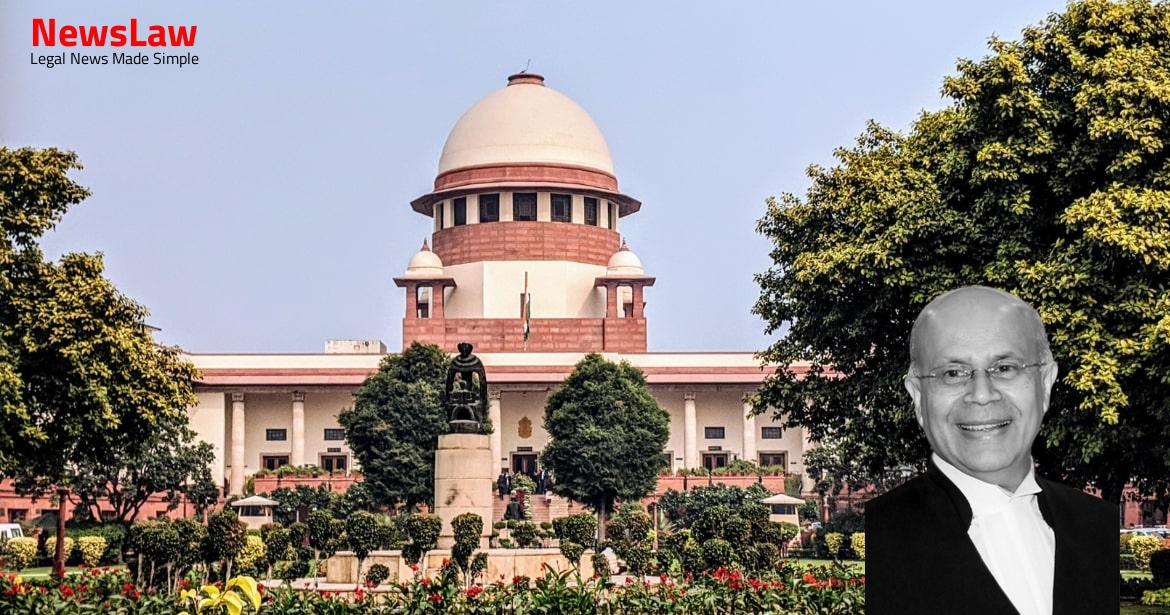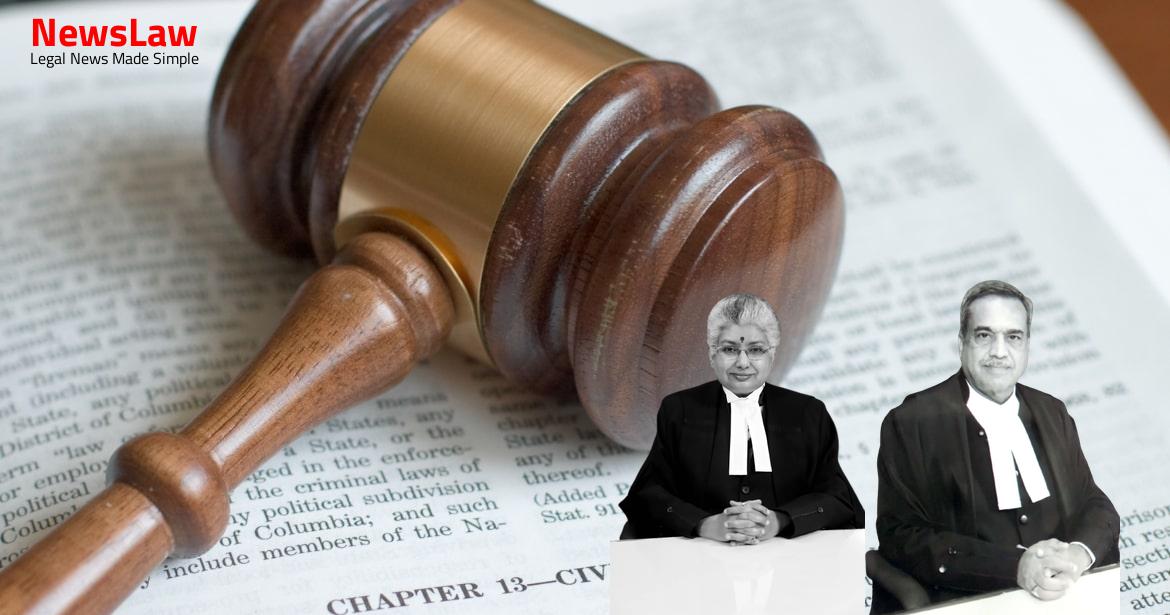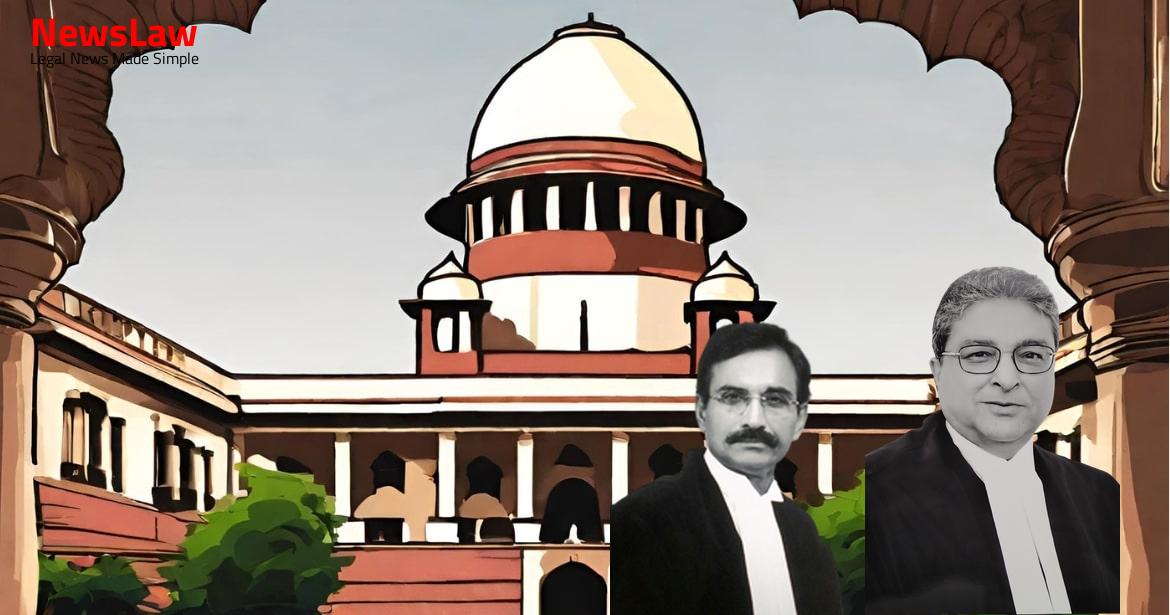Delve into the legal intricacies of blacklisting orders and the significance of upholding principles of fairness and natural justice. Our summary highlights the court’s legal analysis regarding the process leading to blacklisting and the vital role of providing a fair hearing before such orders are passed. Stay tuned to understand the fundamental principles governing executive decisions in relation to blacklisting.
Facts
- The appellate lab test report was received long after the expiry date of the Cream in April 2018.
- No reasons were given in the lab report for the delay in testing.
- The sample sent to the Central Drugs Laboratory was received on 11.02.2019, well after the product had expired.
- The Appellant’s reply to show cause notices in April and June 2018 yielded a result of 92.01%, only about 3% below the required standard.
- Samples were drawn by the first Respondent on 29.11.2017 but were sent for testing on 26.12.2017, causing further delay.
- Despite a pending final report from the appellate lab, the Appellant was blacklisted for 2 years on 21.01.2019.
- Various show cause notices were issued to the Appellant regarding the quality of the product and the potential suspension or cancellation of their manufacturing license.
- Government Analyst’s report was proven to be incorrect
- Post-decisional hearing was conducted for the Appellant
- Seven-member Committee concluded no reason to recall blacklisting order
- Drug Committee found subject drug testing at 61.96% below standard limit of 95-105%
- Appellant’s writ petition in Punjab & Haryana High Court dismissed
- Appellate lab test report showed drug was 3% below prescribed standard of 95%
Also Read: Legal Analysis on Physical Ability in Rape Case
Analysis
- The High Court should have struck down the impugned decision as it relied on an irrelevant first laboratory test report and ignored the appellate report.
- The respondent was deprived of the opportunity to have his sample examined by the Director of the Central Food Laboratory due to prosecution conduct.
- Delays in sample analysis and prosecution filing resulted in the sample being past its shelf life and the vendor’s valuable right to reanalysis being denied.
- The right to have a sample analyzed by a superior authority is crucial, and delay attributable to the state can render any penalties void.
- The impugned decision was based solely on the initial lab report and not the appellate report, which is unfair to the respondent.
- The High Court should not have disregarded the appellate lab report in its decision.
- Considerable delays in sending samples for testing resulted in analysis beyond the product’s shelf life, impacting the right granted by the Drugs and Cosmetics Act.
- The right granted to the respondent to have the sample analyzed by the Director of the Central Food Laboratory was hindered by prosecutorial delays.
- Cost of a test or analysis done by Central Drugs Laboratory to be paid by the complainant or accused.
- The report from the Central Drugs Laboratory is conclusive evidence of the test or analysis results.
- The Inspector must provide copies of the report to the person from whom the sample was taken and any other relevant person.
- A report signed by a Government Analyst is considered conclusive evidence unless contested within twenty-eight days.
- If a person contests a Government Analyst’s report, the Court may allow for additional testing at the Central Drugs Laboratory.
- The High Court noted a significant discrepancy between the initial laboratory report and the appellate laboratory report.
- Blacklisting has the effect of preventing a person from entering into a lawful relationship with the Government for the purpose of gains.
- The authority passing any order blacklisting a certain entity must give a fair hearing before passing the order.
- Fair play requires that the person concerned should be given an opportunity to represent their case before being put on the blacklist.
- The State’s duty is to observe equality and act fairly and rationally without being arbitrary for a legitimate purpose.
- The State has the executive power to trade and make contracts, subject to fairness and non-discrimination.
- The decision to blacklist a person is a necessary concomitant to the State’s executive power.
- Equality before the law and equal protection of the laws are fundamental principles that should be upheld in matters of blacklisting.
- Fairness and equality in transactions with the Government are essential due to the public element in the Government’s activities.
- The process leading to blacklisting must adhere to principles of natural justice, providing an opportunity for the accused to defend and represent their case.
- The order of blacklisting deprives a person of the equality of opportunity in public contracts and dealings with the Government.
- Considerable unexplained delay by the Drug authorities and the Respondent in testing the first and second samples
- Second sample tested 8 months after its shelf life had expired
- Blacklisting order dated 21.02.2019, confirmed by order dated 18.09.2019, is set aside
- Impugned High Court judgment is also set aside
Also Read: Legal Analysis on Admissions and Document Consideration in Insolvency Case
Decision
- The appeal is allowed
Also Read: Analysis of Transfer of Winding Up Proceedings to NCLT
Case Title: MEDIPOL PHARMACEUTICAL INDIA PRIVATE LIMITED Vs. POST GRADUATE INSTITUTE OF MEDICAL EDUCATION AND RESEARCH (2020 INSC 479)
Case Number: C.A. No.-002903-002903 / 2020



